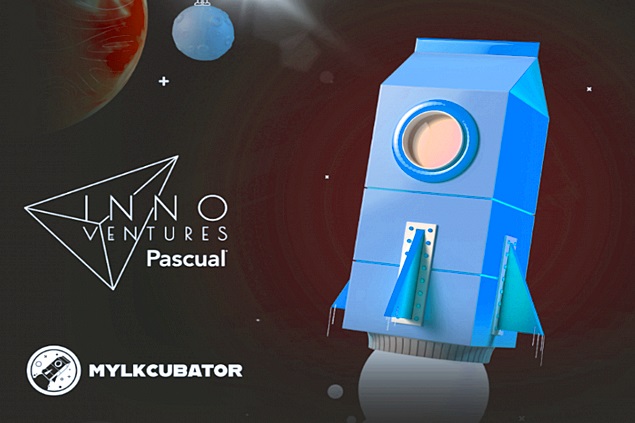1369

According to FoodNavigator, the Mylkcubator program has mainly focused on next-generation innovation in dairy products so far. However, for the third edition of the incubator, Pascual, the leading dairy producer, intends to expand its focus to alternative coffee, cocoa, salt, sugar, and more.
Innovation Incubator
Pascual, a major dairy producer, launched its dairy product innovation incubation program in partnership with the food technology accelerator Eatable Adventures in 2021.
At that time, Pascual Innoventures, the open innovation subsidiary of Pascual based in Spain, stated that by supporting dairy products derived from cellular agriculture, the company was promoting "growing and applying technology in the extended food industry."
In the following year, molecular agriculture projects were added to the previously dairy-focused agenda.
But for the third edition of Mylkcubator, Pascual is expanding its scope even further. While biosynthetic dairy products are still very much on the table, so are new technologies that have an "impact on tangential areas" for Pascual.
Finding Synergies
As a company, Pascual doesn't just work in dairy products through its Leche Pascual division; it also has a strong presence in juice through the Bifrutas and Pascual Essential labels. The company is also involved in soy-based beverages through the Vivesoy brand and takes pride in its significant presence in coffee through the Mocay, Pascual Profesional, and Café Jurado labels.
The latest edition of Mylkcubator, titled "Mylkcubator: More than Milk," is designed to align with these categories. Innovators working on alternatives to coffee, eggs, lipids, cocoa, sodium, and sweetener substitutes, as well as functional ingredients, are encouraged to apply.
"We have expanded technologies beyond generating dairy products into other areas such as egg production, coffee, lipids, and cocoa using alternative approaches that leverage various technologies and ingredients—sodium substitutes and functional ingredients—because we aim to look for future-oriented solutions for our core business, such as coffee and the ingredients we use in our products," said Gabriel Torres, Director of Pascual Innoventures, to FoodNavigator.
The result is an incubator that claims to be the first global program dedicated to advancing cellular agriculture technologies and fermentation techniques in the alternative food industry.
What Mylkcubator Is Looking For
According to Mylkcubator, the program's goal is to support projects that develop technological advances in cellular agriculture and fermentation techniques that create "disruption" in the agri-food system.
Working with "specialized professionals" from the Pascual team network and partners, the program is designed to help startups engage in collaboration models, from sweat equity and proof of concept to commercial agreements, co-creation, technology licensing, investments, and industrial scale-up.
To highlight the new areas of interest for the incubator, in the space for egg alternatives, Pascual and Eatable Adventures are looking for technologies ranging from precision fermentation of proteins, innovative applications of algal proteins, to new approaches using fungal fermentation and plant-based ingredients.
In alternative coffee, Mylkcubator is seeking entrepreneurs working with coffee processing robotics, plant-based blends for coffee-like flavors, genetic editing for improved coffee bean properties, and technology for reusing coffee waste.
In alternative cocoa, the incubator is looking for technologies like oat and vegetable fermentation, lab-cultivated cocoa cells, and the use of cocoa fruit waste to create beverages.
Other areas of interest include lipid alternatives to palm oil and other environmentally related fields. Technologies could range from yeast fermentation for dairy fats to microencapsulation of omega-3, slow-release healthy fats, adipose cell cultivation, fungal fermentation of plant by-products for biomass and lipids separation, and precise CO2 fermentation for lipid production.
In the functional ingredient category, areas of interest include precision fermentation, enzyme advancements, exosome extraction from milk whey, development of functional ingredients using RNA technology, and design using proteomics and computational biology.
Sodium substitutes and sweeteners are also on the radar, from natural sweeteners derived from plant proteins to using fermentation to cultivate specific mushroom strains and creating blends with compounds like stevia, erythritol, or xylitol.
Dairy Products Still 'Make Noise' in Mylkcubator
Now in its third year, Mylkcubator boasts an impressive range of graduates. In total, its two startup cohorts have generated $14.4 million in investments.
In 2021, Mylkcubator focused on cellular agriculture for the dairy product industry, from cell-based technologies to precision fermentation and applied technologies. The cohort included Barcelona-based Real Deal Mil, which produces casein and whey through precision fermentation, and India-based Zero Cow Factory, which claimed at the time to be developing the world's first A2 milk protein through microbial fermentation.
Another startup from Mylkcubator's first cohort is De Novo Dairy (now De Novo Foodlabs) in South Africa, which similarly uses precision fermentation technology to produce animal-free dairy. M2 Factors, a US-based subsidiary of 108Labs, which works to reduce the cost of cellular agriculture dairy production, also participated.
In 2022, Mylkcubator expanded its coverage to include molecular agriculture projects. The cohort included PFx Biotech from Portugal, which develops human milk proteins for use in pediatric and advanced nutrition, and the Dutch molecular agriculture startup Miruku, which produces proteins and fats in plants.
The Israeli startup Maolac also participated in the second cohort. The startup produces functional ingredients from bovine colostrum that are bioequivalent to those found in human milk.
The Argentinean startup Ergo Bioscience, which expresses myoglobin and casein from carrot cell cultures, was also selected, as was Nutropy, a French company that creates casein and fatty acids from dairy through precision fermentation.
Pascual Innoventures chose to invest in De Novo Dairy, Zero Cow Factory, Ergo BioScience, and Maolac.





